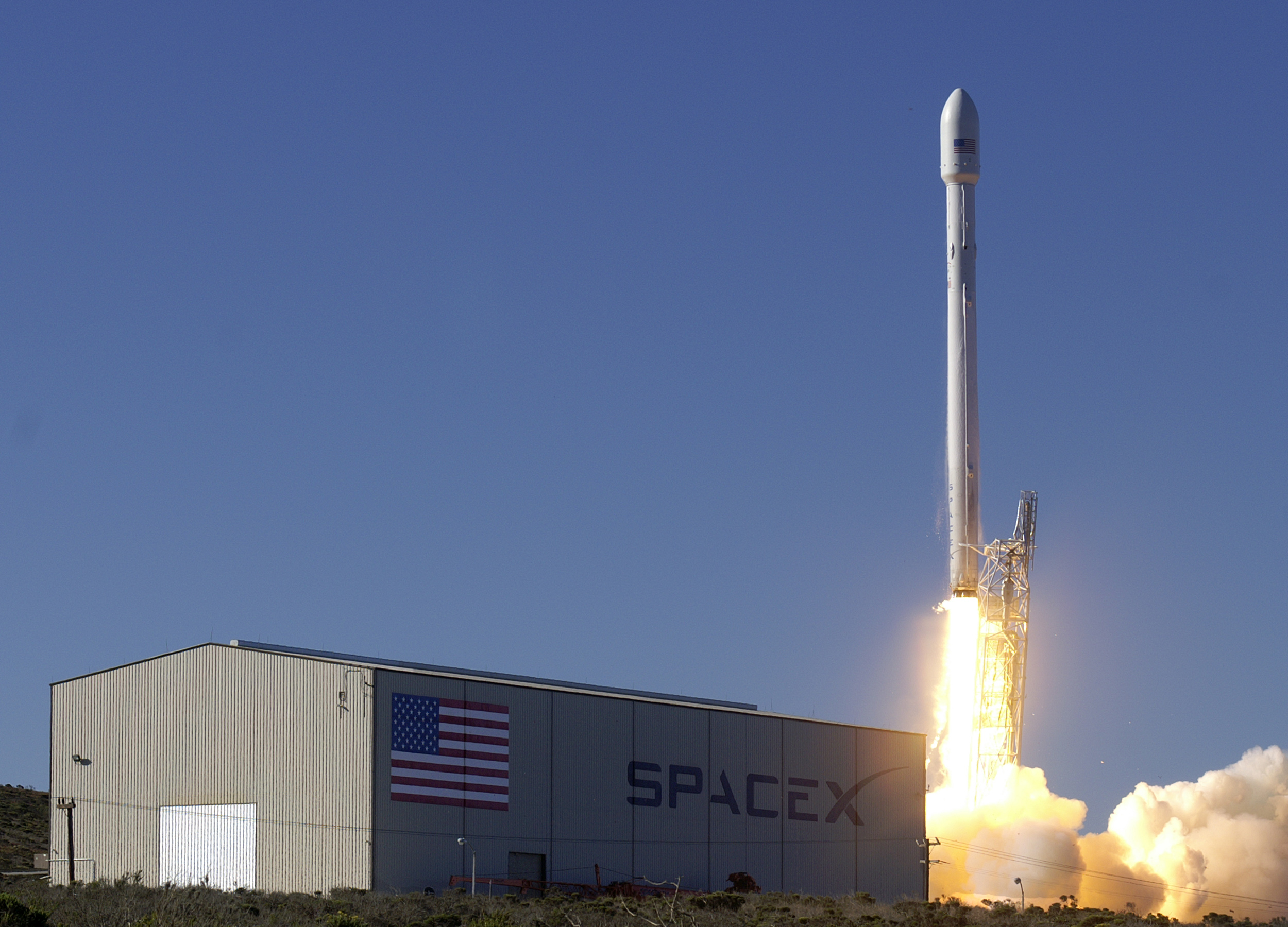
SPACEX LAUNCH

The pioneering private space enterprise, SpaceX, is expected to launch its Falcon 9 rocket from Vandenberg Air Force Base in California on Saturday.
The launch, which was initially scheduled for Monday, will be the first since a Falcon 9 rocket exploded while being fuelled on Sept. 1. The destroyed rocket was carrying a Facebook satellite intended to bring internet to remote areas of Africa.
Saturday’s craft will be loaded with 10 satellites from Iridium Communications, a provider of global voice and data communication. Iridium signed a $492 million contract with SpaceX in 2010 to put a group of 70 satellites into orbit. The constellation will replace the world’s largest commercial satellite network and provide new and more effective services, even allowing air-traffic controllers to monitor planes flying over vast oceans (preventing MH370-type scenarios).
SpaceX’s remarkable journey since being founded in 2002 has transformed the aerospace industry. NASA has contracted the company to fly resupply missions to the International Space Station, and it has successfully tested a reusable rocket system that is significantly cheaper than the NASA’s now-defunct shuttle program (and lands vertically – a world first). In September, the firm’s founder Elon Musk unveiled detailed plans to take humans to Mars, an even more remarkable feat if it can be achieved.
While Saturday’s launch is just one small step for SpaceX, the company’s success could represent a giant leap for mankind.
EGYPTIAN JOURNALIST LEADER APPEALS JAIL SENTENCE

On Saturday, a court in Cairo will begin hearing an appeal by the head of Egypt’s press union. Yehia Kalash was given a two-year prison sentence for harbouring journalists charged with spreading false news about the government’s decision to transfer two Red Sea islands to Saudi Arabia.
Kalash’s conviction is part of a broader crackdown on press freedom under President Abdel Fatteh el-Sisi. The Committee to Project Journalists says 65 reporters have been jailed since Sisi came to power in a 2013 coup, although the actual number is likely to be much higher.
In December, the president signed a new press law, creating a council that will have the power to fine or suspend media outlets at its behest. The members of the body will be picked by Sisi himself.
President Sisi’s media clampdown comes at a time of increasing authoritarianism and statist economic policies. The Red Sea island deal which casts a shadow over Saturday’s hearing was struck in return for billions of dollars in much needed Saudi aid. The move provoked outrage in many quarters of Egyptian society, sparking protests and a subsequent security crackdown.
Unfortunately for Mr Kalash, Egypt’s judiciary has shown little appetite for clemency to journalists brought before them.

